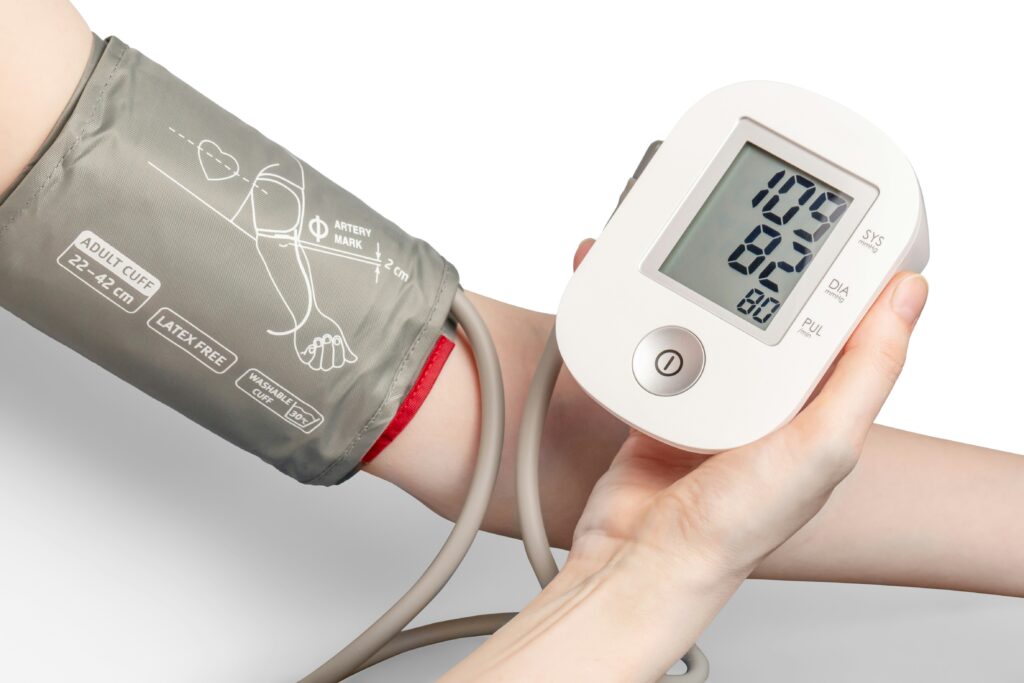American Heart Month is a significant awareness campaign held every February in the United States. It aims to educate people about cardiovascular health and promote heart-healthy lifestyles to prevent heart disease. This initiative aligns perfectly with the mission of Full Distance Physical Therapy and Wellness Practice, which focuses on comprehensive exercise prescriptions targeting all aspects of heart health, both physically and mentally.
According to the American Heart Association, heart disease is one of the top causes of death worldwide per the heart disease and stroke statistics.
At Full Distance, the approach to heart health goes beyond just physical exercise. While stamina, strength, and flexibility are crucial components of a healthy heart, mental well-being and stress management are equally important. Through practices like meditation and breathing exercises, individuals can learn to control their breath, reduce stress, and lower blood pressure, contributing to overall heart health. Numerous lifestyle adjustments can profoundly influence your cardiovascular well-being and contribute to the overall health of your heart. Some of the major contributions to heart health include; Staying Active, Eating Healthy, Weight Management, Routine Health Checks, and Managing Stress.

How Does Staying Active Improve Your Heart Health?
Staying active plays a crucial role in improving heart health in several ways:
Strengthens the heart muscle: Regular physical activity, such as aerobic exercises like walking, jogging, or cycling, helps to strengthen the heart muscle. As the heart becomes stronger, it can pump blood more efficiently, reducing the strain on the cardiovascular system.
Lowers blood pressure: Engaging in physical activity on a consistent basis can help to lower blood pressure. High blood pressure is a significant risk factor for heart disease, so keeping it within a healthy range is essential for heart health.
Improves cholesterol levels: Regular exercise can raise the levels of high-density lipoprotein (HDL) cholesterol, often referred to as “good” cholesterol, while lowering levels of low-density lipoprotein (LDL) cholesterol, known as “bad” cholesterol. This balance helps to reduce the buildup of plaque in the arteries, lowering the risk of heart disease and stroke.
Manages weight: Physical activity helps to burn calories and maintain a healthy weight. Being overweight or obese can increase the risk of heart disease, so regular exercise is vital for managing weight and reducing this risk.
Enhances blood sugar control: Exercise can improve insulin sensitivity and help control blood sugar levels, reducing the risk of developing type 2 diabetes. Diabetes is a significant risk factor for heart disease, so managing blood sugar levels is crucial for heart health.
Reduces stress and anxiety: Physical activity releases endorphins, which are chemicals in the brain that help to improve mood and reduce stress and anxiety. Chronic stress can negatively impact heart health, so finding ways to manage stress through exercise can be beneficial.
Overall, staying active is an essential component of maintaining a healthy heart and reducing the risk of cardiovascular disease. Aim for at least 150 minutes of moderate-intensity aerobic activity or 75 minutes of vigorous-intensity activity each week, along with muscle-strengthening activities on two or more days per week, to reap the maximum benefits for your heart health.
Cardiac rehabilitation is another cornerstone of Full Distance’s approach and can also be beneficial for heart health, especially for individuals who have experienced cardiac events or have cardiovascular conditions. It involves physician-approved physical therapy programs designed to improve cardiovascular endurance, muscle strength, and overall physical function in individuals who have experienced heart-related issues.
Yoga plays a significant role in the holistic approach to heart health at Full Distance. Yoga postures not only improve flexibility and strength but also have profound effects on the mind and body connection. Specifically, hip-opening postures can open up the heart chakra, promoting emotional well-being, while shoulder-opening postures can help create space around the heart, enhancing circulation and energy flow.
Personal Training and group fitness classes like Spin, High-Intensity Interval Training (HIIT), and strength circuit training are recommended to enhance stamina and strength, contributing to better heart health outcomes.
Here at Full Distance, we recognize the importance of addressing musculoskeletal issues, such as knee and hip problems, which can affect an individual’s ability to engage in physical activity. Through personalized physical therapy programs, runners and other active individuals can receive targeted treatments to address these issues, allowing them to continue their activities with reduced risk of further complications.

What Are The Benefits of Eating Healthy for Heart Health?
Eating a healthy diet, rich in fruits, vegetables, whole grains, and healthy fats, helps lower cholesterol, blood pressure, and weight while managing blood sugar levels. This supports overall heart health and reduces the risk of cardiovascular disease.
Here are some Heart-Healthy Recipes to try:

How Does Weight Management Improve Heart Health?
Excess weight increases strain on the heart, raising the risk of conditions like high blood pressure, high cholesterol, and diabetes, all of which can lead to heart disease and stroke. Maintaining a healthy weight reduces this risk and supports overall heart health.
According to the National Institute of Health, obesity is among the leading causes of elevated cardiovascular disease (CVD) mortality and morbidity.
Joining a fitness center and hiring a personal trainer/accountability coach will improve your rate of success in losing weight by providing motivation, support, accountability, feedback, and assistance with goal setting.
Another great option is group fitness classes which offer a holistic approach to fitness, addressing physical, social, and psychological aspects, making them a popular choice for individuals looking to stay motivated, engaged, and consistent with their exercise routine.

How Can Routine Hearth Health Checks Reduce the Risk of Heart Disease?
Routine health checks for heart health offer several benefits:
Early Detection: Regular check-ups can help detect risk factors for heart disease, such as high blood pressure, high cholesterol, and diabetes, at an early stage when they can be effectively managed through lifestyle changes and medication.
Prevention: Health checks allow healthcare providers to assess your overall cardiovascular health and provide personalized recommendations for reducing the risk of heart disease, including advice on diet, exercise, smoking cessation, and stress management.
Monitoring: Routine checks enable healthcare providers to monitor changes in your heart health over time, allowing for early intervention if any abnormalities or signs of heart disease develop.
Risk Assessment: Health checks may include tests and screenings to assess your risk of heart disease, such as blood tests, electrocardiograms (ECGs), and imaging studies like echocardiograms or stress tests. This information helps healthcare providers determine your risk level and tailor preventive strategies accordingly.
Peace of Mind: Regular health checks provide reassurance about your heart health and can alleviate anxiety or concerns you may have about your cardiovascular risk factors.
Improved Outcomes: Studies have shown that individuals who undergo regular health checks and receive timely interventions for cardiovascular risk factors have better outcomes and lower rates of heart disease-related complications.
Overall, routine health checks for heart health are essential for early detection, prevention, and management of cardiovascular risk factors, ultimately leading to better heart health outcomes and a reduced risk of heart disease.
If you are looking for a Cardiovascular Specialist, check your local physician directory and be sure to review their credentials.

How Does Managing Stress Benefit Your Heart Health
Extended periods of intense and widespread stress can lead to direct health consequences, such as elevated blood pressure and increased cholesterol levels.
Additionally, there are indirect effects, such as the adoption of behaviors and habits that can exacerbate physical health and functioning, including smoking, overeating, or reducing physical activity. You may find more information on this topic in the following article from the May Clinic: Tips to Keep Stress from Hurting Your Heart.
In today’s fast-paced world, managing stress can be challenging, whether it stems from work, family, schedules, or personal struggles. It’s crucial to acknowledge feelings of anxiety and stress and prioritize self-care. Managing stress may involve getting adequate sleep, adopting a healthier diet, staying physically active, and practicing mindfulness techniques like meditation, yoga, or massage therapy.
Socialization and community engagement also play a vital role in promoting heart health at Full Distance. Occupational Therapy, grateful aging groups and social hours provide opportunities for individuals to connect, share barriers and experiences, and support each other on their wellness journey. This sense of community fosters motivation, accountability, and a sense of belonging, which are all essential for maintaining long-term heart-healthy habits.
Companion care is also provided at Full Distance, fostering emotional support and companionship for individuals on their wellness journey. This social connection and emotional well-being are essential components of overall heart health, promoting a sense of belonging and reducing feelings of isolation and stress.
Recognizing and addressing stressors can help maintain your overall well-being in the face of life’s demands.
In summary, American Heart Month serves as a reminder of the importance of prioritizing heart health.
Choosing Full Distance Physical Therapy and Wellness
American Heart Month aims to raise awareness about cardiovascular health, promoting heart-healthy lifestyles to prevent heart disease. Full Distance Physical Therapy and Wellness Practice shares this mission by offering comprehensive programs targeting all aspects of heart health, including physical exercise and mental well-being through practices like meditation and yoga.
Their approach extends to cardiac rehabilitation, personalized physical therapy for musculoskeletal issues, and group fitness classes to enhance stamina and strength. Additionally, they offer massage therapy, which can help improve circulation, reduce stress, and lower blood pressure, all of which contribute to heart health.
Companion care is also provided at Full Distance, fostering emotional support and companionship for individuals on their wellness journey. This social connection and emotional well-being are essential components of overall heart health, promoting a sense of belonging and reducing feelings of isolation and stress.
In summary, Full Distance embodies the principles of American Heart Month by providing holistic programs that address cardiovascular wellness contributing to improved heart health and overall well-being.










